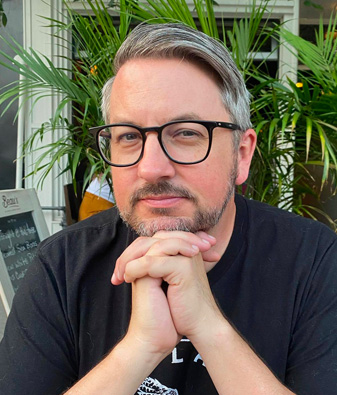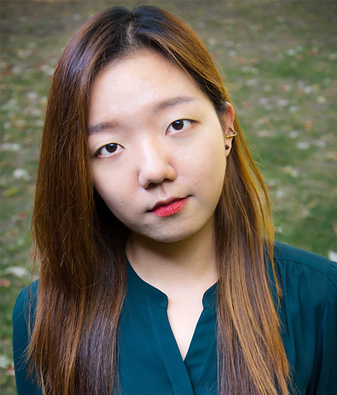Spring fever is here. With brighter, warmer days on the horizon, people are emerging from hibernation and throwing off the shroud of another pandemic winter to find what feels good. For some single people, that means seeking a mate. But not everyone who is single is looking for a relationship — in fact, some prefer to stay that way.
So why are some folks happier flying solo, while others … not so much? Are some people truly better off alone?
This is where attachment styles come into play, according to Geoff MacDonald, acting chair and professor in the Department of Psychology at the Faculty of Arts & Science who studies singlehood, social connection and relationships.
Attachment styles are a combination of personality traits and adult relationship experience, and can be categorized into three types: secure, avoidant and anxious. Think of them as individual filters that influence how people experience connections with others, and how they expect their relationships will unfold.

“Understanding your own attachment style will help you understand to what degree a relationship will satisfy your goals,” says MacDonald. “For example, an anxious person wants to be in a relationship to feel better about themselves, but that’s not how it works — they end up feeling unhappy anyway. Whereas a secure person wants one not as a self-esteem boost, but for companionship.”
In a recent study, MacDonald and co-author Yoobin Park, a University of Toronto alumna currently doing postdoctoral research at the University of California, San Francisco, investigated these differences, resulting in the first data to connect attachment styles to how happy people are with being single and with their lives overall.
Securely attached singles — those with low levels of avoidance and anxiety — expect others will be welcoming and comforting, and meet their emotional needs through many relationship types, like those with friends and family. “Securely attached folks are skilled at managing negative emotions and to put it plainly, better at life,” says MacDonald. “It’s no surprise that we found they’re better at singlehood and generally satisfied with life.”
The most interesting findings had to do with avoidantly attached people, who prioritize independence over intimacy and tend to distrust other people. This group reported being satisfied with their single status as expected, but less happy with life overall. As Park puts it, “Despite common belief, there seems to be more to being a happy single than simply not wanting a partner.”
MacDonald points out that most of the literature about individuals with higher attachment avoidance examines them in romantic relationships — a particularly uncomfortable context for them — and because of this, they’ve gotten a bad rap.
Stage of life is a factor as well — evidence shows that younger generations are happier with singlehood than older generations, and ultimately that older single people who don’t want a romantic partner are the happiest single people overall.
“For a long time, we thought avoidant people deeply want love, but suppress this desire because they fear the vulnerability that’s necessary for building intimate relationships. Turns out that this just may not be what they’re interested in. They may be more fulfilled by their work life, for example.” Exactly why these avoidants are lower in overall life satisfaction, however, is still an open question that MacDonald’s lab is looking to answer.
In contrast to the avoidantly attached, anxiously attached people crave intimacy but fear potential rejection from others. They experience high levels of negative emotion and tend to feel overly dependent on close relationships. This group is not happy about being single, not happy with life in general and strongly desires a partner.
One of the ways anxious people deal with their negative emotions is by relying on others, which is why they are particularly attracted to relationships and yet find themselves struggling to be happy while in them. MacDonald explains that for anxiously attached people to have more success romantically, they need to better manage emotional distress: “Therapy is one tool that can help — they can learn how to be empowered to choose partners that bring out their best, happiest selves instead of coupling up as a quick-fix for stress.”

Anxious types can also take the pressure off romantic relationships by placing more value on the connections they have with their friends and family.
“There’s a cultural tendency to focus on how people get their emotional needs met solely in the romantic relationship context. When looking at the experiences of single people, as a researcher you take into consideration all these other relationships that are either supportive resources or the causes of problems for individuals,” MacDonald says.
This is one reason why securely attached people are generally happy being single — because they maintain close relationships in other realms. MacDonald also points to another recent study as an example of how different types of social connections contribute to wellbeing, where he and Park examined what determined sexual satisfaction for singles. Perhaps not surprisingly, singles who are happier with their sex lives are happier being single, and less interested in a committed, romantic relationship.
Singlehood research has traditionally focused on the role of romantic relationships in single people’s lives. Now, labs like MacDonald’s are pointing attention to the fact that single people have a lot more going on in their lives than wanting or not wanting a romantic relationship – they have families, friends, careers and hobbies that all help determine how happy they are.
“Stage of life is a factor as well — evidence shows that younger generations are happier with singlehood than older generations, and ultimately that older single people who don’t want a romantic partner are the happiest single people overall,” says MacDonald.
Pandemic isolation has prompted some singles to take charge of their romantic life, whether that was to seek out partners or reaffirm satisfaction with singledom. At the end of the day, there is no shame in acknowledging loneliness and desiring a partner — but knowing where one falls on the attachment scale helps determine whether looking for ‘the one’ or looking inward first is the ultimate key to happiness.

